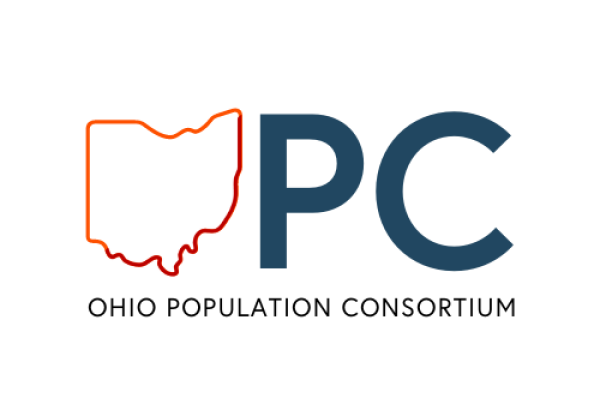
Webinar hosted by the Ohio Population Consortium
Beyond Yes and No: Uncertainty, Ambivalence, and Indifference in Reproductive Decision-Making
Monika Mynarska, Institute of Psychology, Cardinal Stefan Wyszyński University in Warsaw
If people are asked about their fertility desires or intentions, their responses can rarely be narrowed down to a simple yes or no. Existing research consistently shows that many—if not most—individuals fall somewhere in between these extremes. The real challenge, however, is how to conceptualize and measure this middle ground effectively. Is uncertainty a midpoint between the extremes? Or is it a distinct category with its own meaning? Or perhaps it captures different phenomena, such as ambivalence and indifference? In this short talk, I will share insights from studies using data from Poland, the UK, and Denmark, illustrating how uncertainty, ambivalence, and indifference can manifest in reproductive decision-making.
Advancing Understanding of Pregnancy Preferences Using a Novel Prospective Measure
Corinne Rocca, School of Medicine, Department of Ob/Gyn and Reproductive Sciences, ANSIRH Program
Most approaches to capturing people’s pregnancy desires and preferences in reproductive health and demographic research are conceptually and psychometrically limited, resulting in potentially misleading results. The development of the prospective Desire to Avoid Pregnancy (DAP) scale represents one approach to addressing some of the limitations. In this short presentation, I will describe the theoretic grounding, novel features, and psychometric properties of the DAP scale. I will discuss how the scale is being applied in two longitudinal studies in the United States, the Surveys of Women and the ADAPT Study, to advance understanding of the distribution, stability, and predictive ability of preferences, as well as the consequences of attaining or not attaining one’s reproductive preferences on maternal and child health and well-being. Finally, I will review the limitations and challenges of the scale’s use for demographic and clinical research more broadly.
Rethinking the Role of Fertility Intentions in Family Planning Measurement
Elizabeth Sully, Guttmacher Institute
The alignment between fertility intentions and behaviors has been the core foundation for decades in defining unmet need for contraception, but it has come under growing criticism for ascribing rather than asking people directly about their desires and preferences for using contraception. Recent innovations in family planning measurement have proposed new indicators that do not account for fertility intentions in defining contraceptive need. This presentation will discuss these new directions for family planning measurement, and the benefits and challenges that come from disconnecting our measures of family planning need from fertility intentions.
Speaker bios:
Monika Mynarska is a psychologist and social demographer. She is an associate professor at the Institute of Psychology at Cardinal Stefan Wyszyński University in Warsaw and a research fellow at the Families and Generations Lab at the Warsaw School of Economics, where she coordinates the Polish Generations and Gender Programme (GGP). Since 2022, she has chaired the GGP Questionnaire Task Force. Her research interests lie at the intersection of psychology, family sociology, and social demography. She focuses on reproductive decision-making, particularly on the psychological determinants of the (weak to none) desire to have children. Employing both quantitative and qualitative methodologies, she seeks to understand the factors contributing to individuals' fears, doubts, and uncertainties regarding parenthood. Recently, she has been exploring the concept of ambivalent motivations in relation to childbearing. Dr. Mynarska completed her PhD at the Max Planck Institute for Demographic Research in Germany.
Corinne Rocca is professor in residence in UCSF’s Department of Obstetrics, Gynecology and Reproductive Sciences. An epidemiologist by training, her research focuses on investigating how social and attitudinal factors contribute to pregnancy decision-making and reproductive well-being within the context of people’s lives. Her team developed the Desire to Avoid Pregnancy (DAP) scale to advance how researchers conceptualize and measure pregnancy preferences prospectively and to promote person-centered approaches to care and public health programming. She is a former NICHD Building Interdisciplinary Research Careers in Women’s Health (BIRCWH) scholar. Dr. Rocca has a PhD in epidemiology from the University of California, Berkeley School of Public Health.
Elizabeth Sully is a principal research scientist at the Guttmacher Institute, where she leads a research portfolio focused on the measurement of abortion and contraceptive need, the impact of restrictive policies on reproductive health services and outcomes, and modeling the impacts and cost of sexual and reproductive health care. She is co-chair of the FP2030 Performance Monitoring and Evidence Working Group, and co-chairs the IUSSP scientific panel on Rethinking Family Planning Measurement with a Rights and Justice Lens. Dr. Sully has a PhD in public affairs and demography from the Princeton School of Public and International Affairs and the Office of Population Research.
